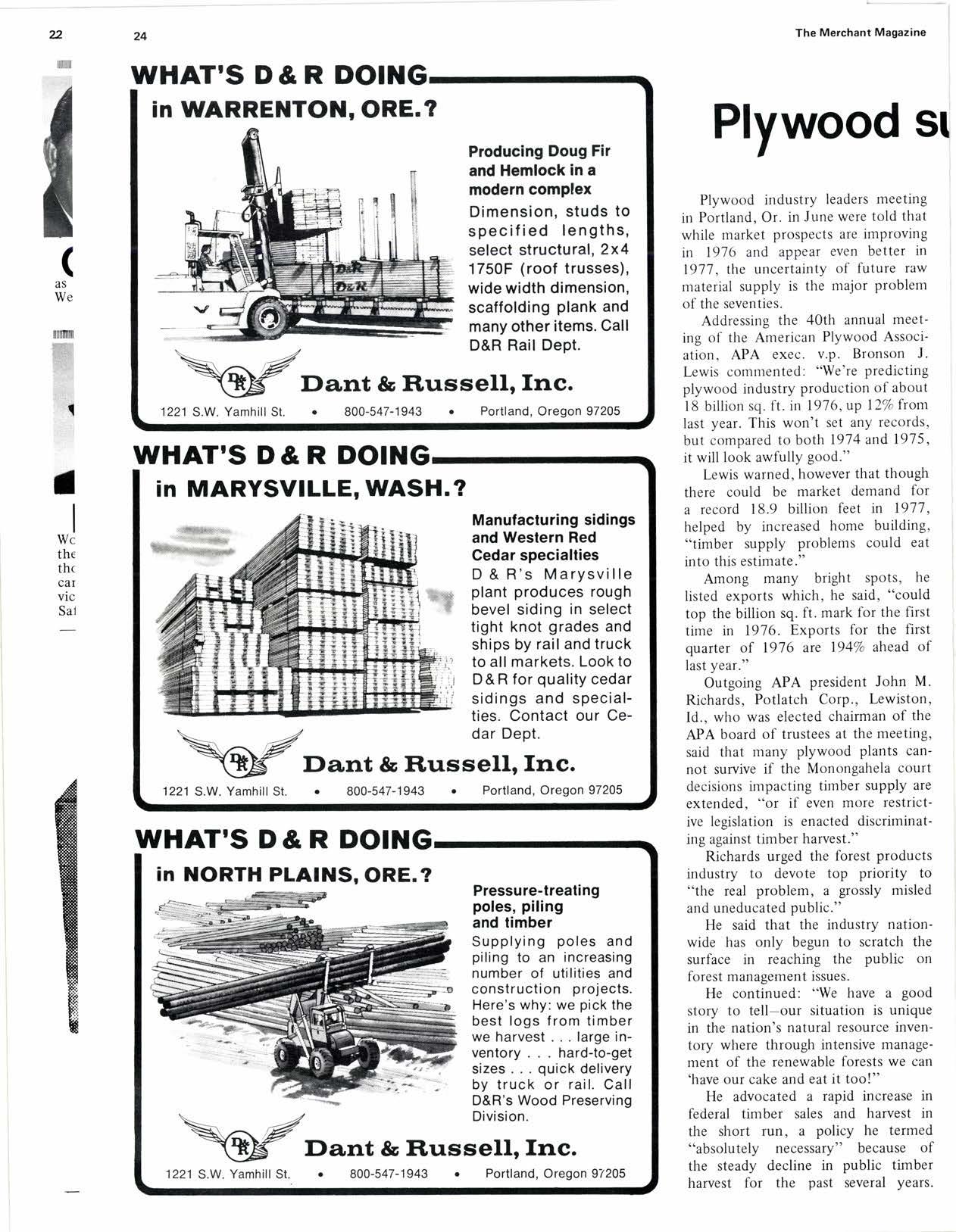
1 minute read
Plywood s
Producing Doug Fir and Hemlock in a modern comptex Dimension, studs to specified lengths, select structural, 2x4 1750F (roof trusses), wide width dimension, scaffolding plank and many other items. Call D&R Rail Dept.
WHAT'S D&R DOIN
Portland, Oregon 97205
Manufacturing sidings and Western Red Cedar specialties
D & R's Marysville plant produces rough bevel siding in select tight knot grades and ships by rail and truck to all markets. Look to D&R for quality cedar sidings and speciaities. Contact our Cedar Dept.
WHAT'SD&RDOtl{G
Pressure-treating
poles, piling and timber
Supplying poles and piling to an increasing number of utilities and construction proiects. Here's why: we pick the best logs from timber weharvest...largeinventory . . . hard-to-get sizes. quick delivery by truck or rail. Call D&R's Wood Preserving Division.
Plywood industry leaders meeting in Portland, Or. in June were told that while market prospects are improving in 1976 and appear even better in 1911, the uncertainty of future raw material supply is the major problem of the seventies.
Addressing the 40th annual meeting of the American Plywood Association, APA exec. v.p. Bronson J. Lewis commented: "We're predicting plywood industry production of about l8 billion sq. ft. in l976,up 12% from last year. This won't set any records, but compared to both 19'7 4 and 197 5 it will look awfully good."
Lewis warned, however that though there could be market demand for a record 18.9 billion feet in 1977 , helped by increased home building, "timber supply problems could eat into this estimate."
Among many bright spots, he listed exports which, he said, "could top the billion sq. ft. mark for the first time in 1976. Exports for the first quarter of 1976 are 194% ahead of last year."
Outgoing APA president John M. Richards, Potlatch Corp., Lewiston, Id., who was elected chairman of the APA board of trustees at the meeting, said that many plywood plants cannot survive if the Monongahela court decisions impacting timber supply are extended, "or if even more restrictive legislation is enacted discriminating against timber harvest."
Richards urged the forest products industry to devote top prioritY to "the real problem, a grossly misled and uneducated public."
He said that the industry nationwide has only begun to scratch the surface in reaching the public on forest management issues.
He continued: "We have a good story to tell-our situation is unique in the nation's natural resource inventory where through intensive management of the renewable forests we can 'have our cake and eat it too!"
He advocated a rapid increase in federal timber sales and harvest in the short run, a policy he termed "absolutely necessary" because of the steady decline in public timber harvest for the past several years.










